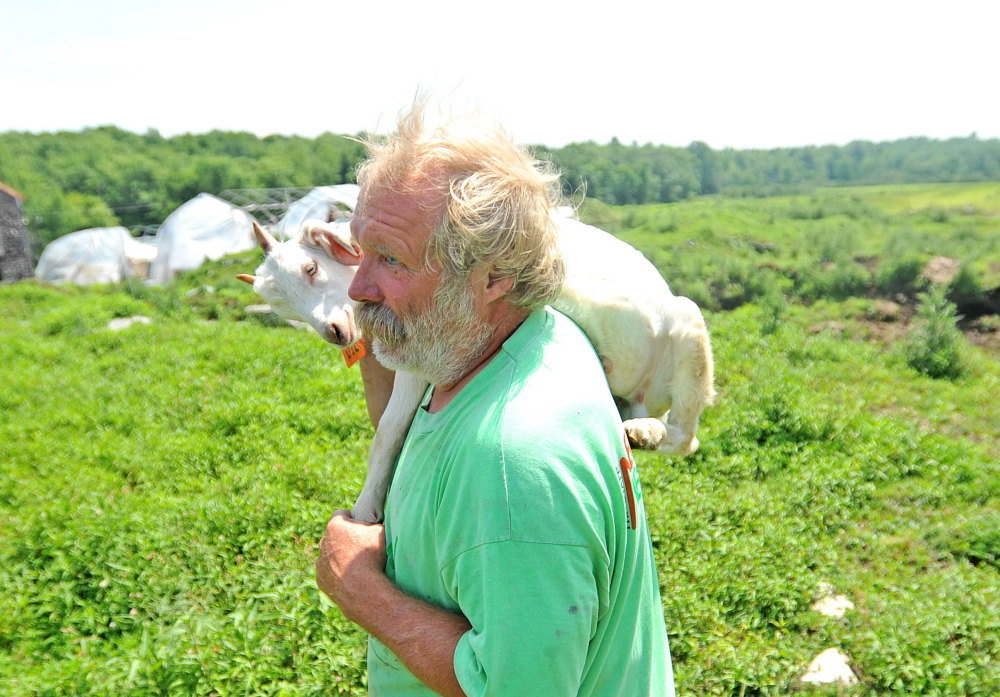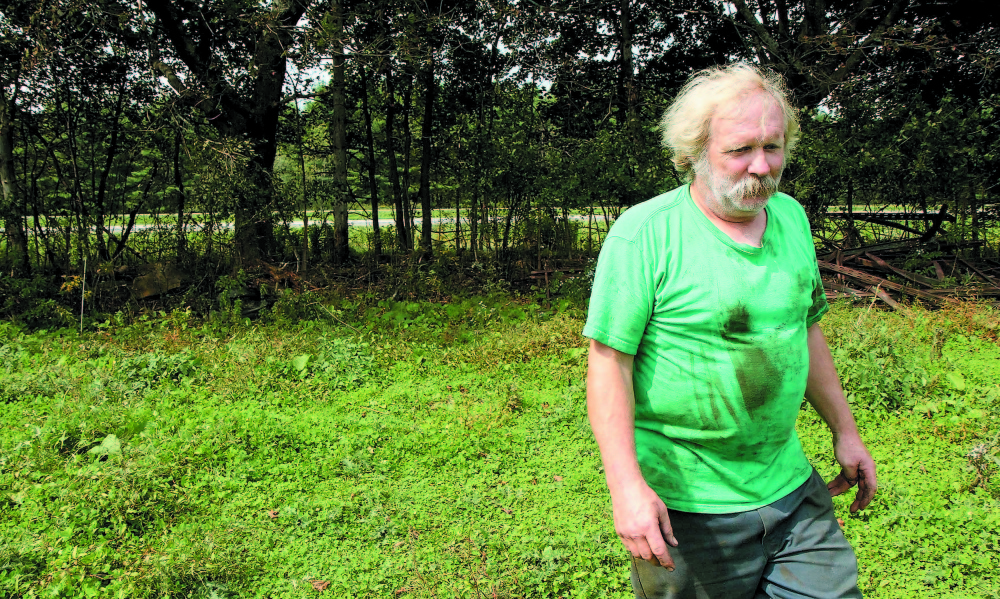SIDNEY — An investigation into a Sidney farmer who allegedly left dead livestock where they dropped on his property has been referred to the attorney general’s office for enforcement.
State rules require farmers to remove, compost or bury dead livestock, but animals found on Mark Gould’s Drummond Road property were left where they died, according to Matthew Randall, inspection supervisor for the department’s agricultural compliance program.
Gould, reached by phone Thursday, admitted that there were dead animals on his property during the winter, but he said that they had been cleaned up and composted.
“Animals die, just like anywhere else,” he said, but declined to comment further.
Last summer, Gould was charged with animal trespassing after goats he owned repeatedly escaped onto Drummond Road and state property along Interstate 95. In 2011, Gould was summoned to court on a charge of animal trespassing after several of his cows were seen grazing along the Interstate.
According to Randall, investigators first visited Gould’s property on March 21 this year, responding to several complaints of dead livestock visible at the farm.
In the initial inspection, investigators observed the carcasses of three cattle and an undetermined number of chickens, Randall said. Two of the cattle were young, and the third was only partially exposed and investigators could not determine its age, he said.
Investigators were also unable to determine a cause of death, Randall said.
Department staff have conducted three site inspections since the initial visit, the last on April 10, and the animals remained where they had been on the property, according to Randall.
“Nothing has changed since the first visit,” he said.
Gould was not present when staff conducted the visits, and inspectors have not been able to access the entire property, Randall said.
“We have limitations on how far we can go out without the owner present,” he said. Department staff have had telephone calls with Gould twice, Randall added.
While there are health concerns with incorrectly disposing animal remains, it is partially a matter of respect for the animal, Randall said.
“When a creature dies, it is respectful to lay them to rest,” he said.
The department has regulations on the proper methods of disposing animals, including where to locate compost pits and graves and what types of materials to use when composting animal carcasses.
Violators can be fined up to $500 a day and up to a total of $50,000, according to the regulations.
The agriculture department referred the case to the attorney general’s office for enforcement of a civil violation after the third site visit, Randall said. On Thursday, attorney general spokesman Timothy Feeley confirmed that the allegations had been referred to the office, but did not comment further.
Red Laliberte, who owns an alpaca farm in Sidney, said he was concerned about the sanitary implications of leaving decomposing animals on Gould’s property. “My biggest concern is health,” he said.
Laliberte raises about 80 alpaca on his farm about three miles away from Gould’s property, and he said he was concerned that a virus or disease could still be transmitted to his animals. His overriding issue is that animals aren’t being taken care of when they die, he said.
“That’s just not right,” Laliberte said. “It’s totally out of the ordinary.”
Scott Greaney, who owns a turkey farm and slaughterhouse in Mercer, said some farmers might skirt state rules, such as dragging an animal out to the woods to decompose. Generally, however, a farmer will remove a corpse to limit the risk of spreading disease to other animals or attracting scavengers, Greaney said.
“It’s all about stewardship and taking care of other animals,” he said. Not disposing of animal corpses at all would be very unusual, Greaney said.
His family maintains a compost heap to deal with the offal and byproduct from its slaughterhouse, Greaney said. If an animal dies, it is buried in a mix of manure, sawdust and feathers and aerated with a rototiller. The composting process produces high heat that breaks the animal down quickly and limits exposure to insects or disease, Greaney said.
“Composting is standard practice,” he said.
For people without the means to remove or compost an animal corpse themselves, there are rendering companies and private donors, like DEW Haven, an animal preserve in Mount Vernon, that will come and take it, Greaney said.
“It’s pretty easy to get rid of,” he said.
Peter McGuire — 861-9239
pmcguire@centralmaine.com
Twitter: @PeteL_McGuire
Send questions/comments to the editors.





Success. Please wait for the page to reload. If the page does not reload within 5 seconds, please refresh the page.
Enter your email and password to access comments.
Hi, to comment on stories you must . This profile is in addition to your subscription and website login.
Already have a commenting profile? .
Invalid username/password.
Please check your email to confirm and complete your registration.
Only subscribers are eligible to post comments. Please subscribe or login first for digital access. Here’s why.
Use the form below to reset your password. When you've submitted your account email, we will send an email with a reset code.